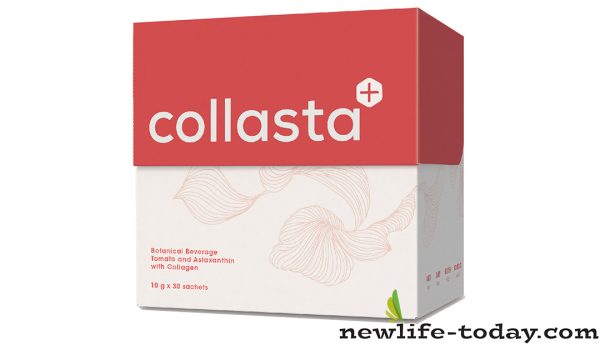Vitamin B5 is an ingredient found in our
Collasta+
product as shown above.
Ingredients contained are not sold separately from the product
unless it's the only ingredient.
Collasta+ contains Fructo-Oligosaccharides, Hydrolyzed Marine Collagen, Citric Acid, Tomato, Astaxanthin, Haematococcus Pluvialisin, Vitamin A, Vitamin D3, Vitamin E, Vitamin K1, Vitamin B1, Vitamin B2, Vitamin B3, Vitamin B5, Vitamin B6, Vitamin B7, Vitamin B9, Vitamin B12, Vitamin C, Fruit Flavour, Stevia, Grape Seed, Green Tea, Pine Bark Extract, Mangosteen, Tremelia, Marigold Flower.
Vitamin B5: Scientific Definition and Benefits
Vitamin B5, also known as pantothenic acid, is a water-soluble vitamin that plays a vital role in the metabolism of carbohydrates, fats, and proteins. It is essential for synthesizing coenzyme A (CoA), which is involved in energy production and the synthesis of essential molecules such as fatty acids, hormones, and neurotransmitters. Vitamin B5 is found in a wide range of foods, making it one of the most widely available B vitamins.
Health Benefits of Vitamin B5
-
Energy Production
- Vitamin B5 is crucial for the synthesis of coenzyme A (CoA), which is involved in the breakdown of carbohydrates, fats, and proteins to produce energy. This makes it essential for overall metabolic health.
-
Support for Healthy Skin
- Pantothenic acid has been shown to support skin health by promoting healing and reducing acne. It is often used in skincare products due to its ability to hydrate and soothe the skin.
-
Stress Reduction
- Vitamin B5 is involved in the synthesis of adrenal hormones, including cortisol, the body’s primary stress hormone. It may help the body better manage stress by supporting adrenal function.
-
Brain Function and Mental Health
- Vitamin B5 supports the production of acetylcholine, a neurotransmitter essential for memory, concentration, and cognitive function. It may help improve mood and reduce symptoms of anxiety and depression.
-
Wound Healing
- Pantothenic acid promotes the healing of wounds by encouraging cell regeneration and reducing inflammation, speeding up the recovery process after injuries or surgeries.
-
Heart Health
- Pantothenic acid contributes to cholesterol metabolism. Some studies suggest it may help reduce levels of LDL cholesterol (bad cholesterol) and improve heart health.
-
Fat Metabolism
- Vitamin B5 is essential for the breakdown and synthesis of fatty acids, playing a role in the regulation of fat metabolism, and may help in the management of cholesterol levels.
-
Improved Digestion
- Pantothenic acid helps maintain healthy digestion by supporting the synthesis of digestive enzymes and promoting gut health.
-
Immune System Support
- Vitamin B5 enhances immune function by supporting the production of antibodies, helping the body fight off infections.
Sources of Vitamin B5
- Animal-based foods: Chicken, turkey, beef, liver, and fish.
- Plant-based foods: Whole grains (brown rice, oats), legumes (beans, lentils), nuts (sunflower seeds, peanuts), and vegetables (avocados, sweet potatoes).
- Fortified foods: Some breakfast cereals and energy bars.
- Supplements: Available in standalone or B-complex formulations.

